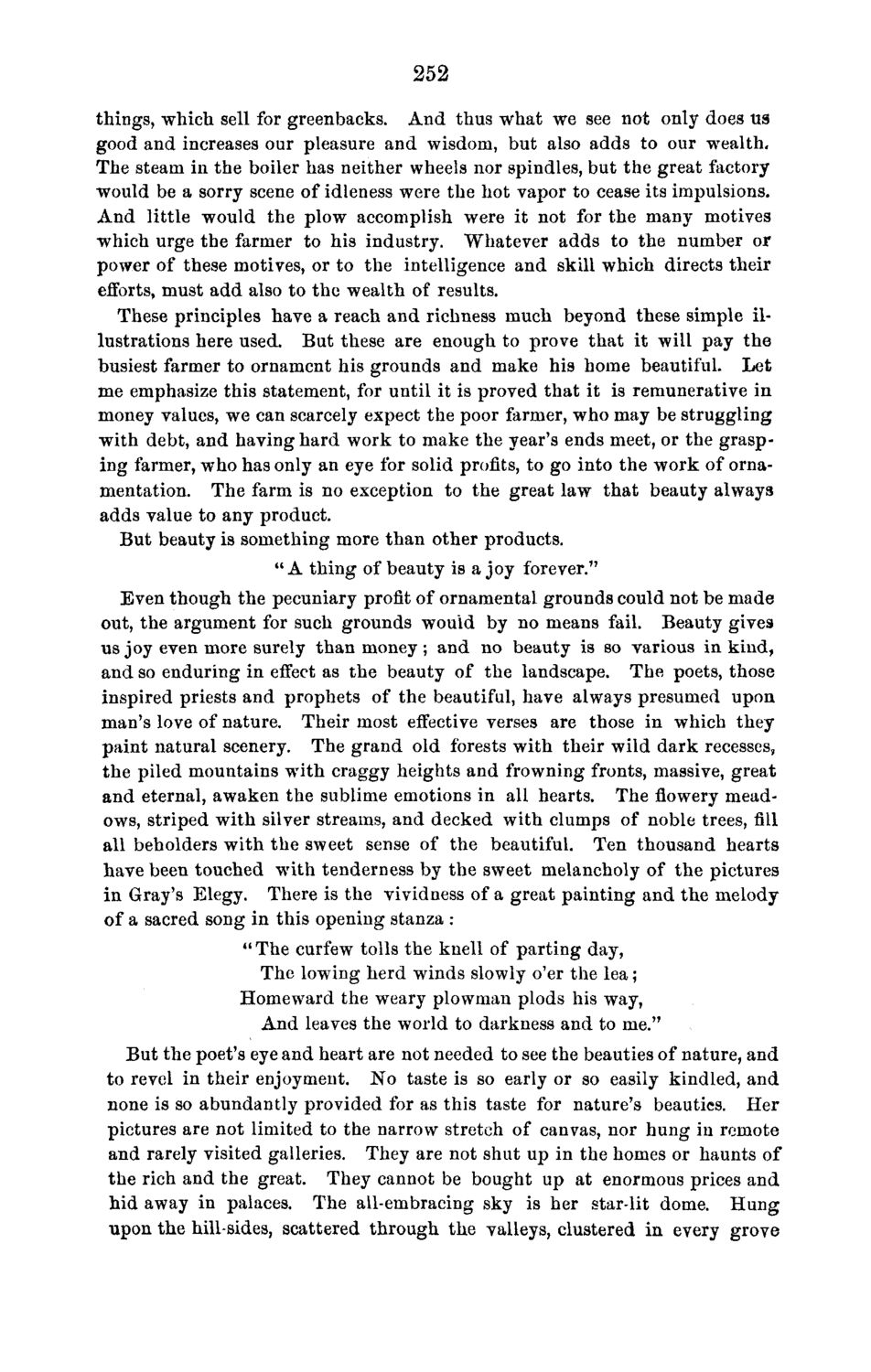| |
| |
Caption: Board of Trustees Minutes - 1870
This is a reduced-resolution page image for fast online browsing.

EXTRACTED TEXT FROM PAGE:
252 things, which sell for greenbacks. And thus what we see not only does us good and increases our pleasure and wisdom, but also adds to our wealth. The steam in the boiler has neither wheels nor spindles, but the great factory would be a sorry scene of idleness were the hot vapor to cease its impulsions. And little would the plow accomplish were it not for the many motives which urge the farmer to his industry. Whatever adds to the number or power of these motives, or to the intelligence and skill which directs their efforts, must add also to the wealth of results. These principles have a reach and richness much beyond these simple illustrations here used. But these are enough to prove that it will pay the busiest farmer to ornament his grounds and make his home beautiful. Let me emphasize this statement, for until it is proved that it is remunerative in money values, we can scarcely expect the poor farmer, who may be struggling with debt, and having hard work to make the year's ends meet, or the grasping farmer, who has only an eye for solid profits, to go into the work of ornamentation. The farm is no exception to the great law that beauty always adds value to any product. But beauty is something more than other products. " A thing of beauty is a joy forever." Even though the pecuniary profit of ornamental grounds could not be made out, the argument for such grounds would by no means fail. Beauty gives us joy even more surely than money; and no beauty is so various in kind, and so enduring in effect as the beauty of the landscape. The poets, those inspired priests and prophets of the beautiful, have always presumed upon man's love of nature. Their most effective verses are those in which they paint natural scenery. The grand old forests with their wild dark recesses, the piled mountains with craggy heights and frowning fronts, massive, great and eternal, awaken the sublime emotions in all hearts. The flowery meadows, striped with silver streams, and decked with clumps of noble trees, fill all beholders with the sweet sense of the beautiful. Ten thousand hearts have been touched with tenderness by the sweet melancholy of the pictures in Gray's Elegy. There is the vividness of a great painting and the melody of a sacred song in this opening stanza : " The curfew tolls the knell of parting day, The lowing herd winds slowly o'er the lea; Homeward the weary plowman plods his way, And leaves the world to darkness and to me." But the poet's eye and heart are not needed to see the beauties of nature, and to revel in their enjoyment. No taste is so early or so easily kindled, and none is so abundantly provided for as this taste for nature's beauties. Her pictures are not limited to the narrow stretch of canvas, nor hung in remote and rarely visited galleries. They are not shut up in the homes or haunts of the rich and the great. They cannot be bought up at enormous prices and hid away in palaces. The all-embracing sky is her star-lit dome. Hung upon the hill-sides, scattered through the valleys, clustered in every grove
| |